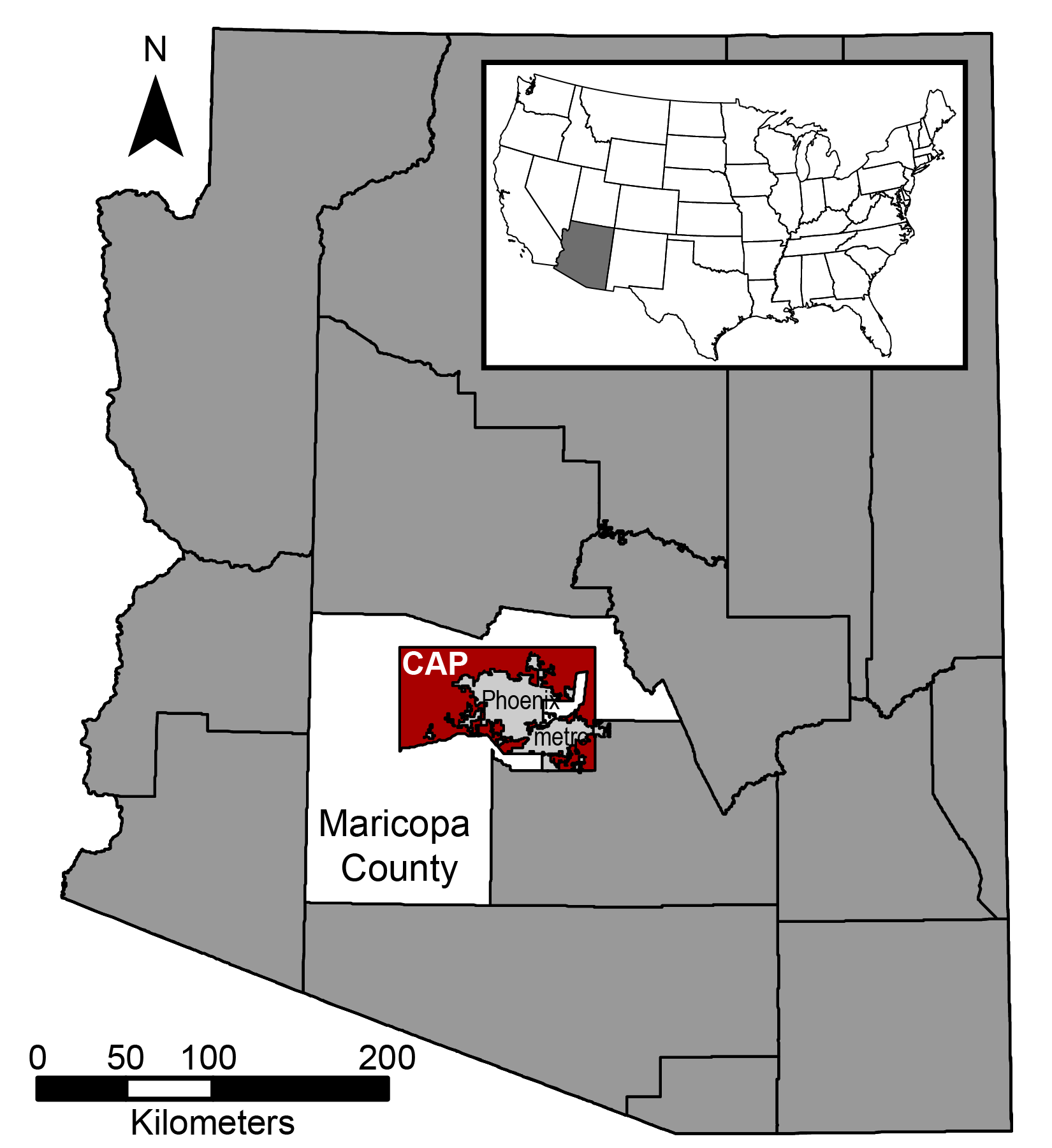The Central Arizona–Phoenix Long-Term Ecological Research Program is one of 27 LTER sites funded by the National Science Foundation. Launched in 1997 along with the Baltimore Ecosystem Study as the first urban LTER sites, CAP has been instrumental in establishing urban ecology as a recognized and respected focus of ecological inquiry. While BES maintains an active research program outside of the NSF-funded LTER Network, CAP and the recently awarded Minneapolis-St. Paul LTER continue to advance the field of interdisciplinary, social-ecological urban ecology within the Network.
Our work focuses on a 6,400 km2 study area that includes the nation’s fifth largest city, Phoenix, 25 other municipalities, and outlying Sonoran Desert. We engage biological, physical, engineering and social scientists in research that provides a foundation for understanding urban social-ecological systems in an arid and rapidly growing metropolitan area.
Educating the next generation of urban ecologists is central to our mission. The Ecology Explorers program engages K-12 students and teachers, while undergraduate and graduate students are active researchers whose work is published in leading scientific publications. CAP scientists, staff, and students are also actively engaged in community engagement, including with local Indigenous communities and tribes.
The CAP research program serves as a platform from which many other research initiatives have been launched; it is a model for interdisciplinary collaboration. Over $125 million in grant funding has been leveraged from our work and we continue to develop partnerships with individuals and institutions in the academic, nonprofit and public sectors. Since 1997, CAP researchers have published more than 900 peer-reviewed works.
Our institutional home is in the Global Institute of Sustainability and Innovation at Arizona State University, which houses several CAP LTER-affiliated programs, such as the Decision Center for a Desert City and Sustainable Cities Network.h Network.
